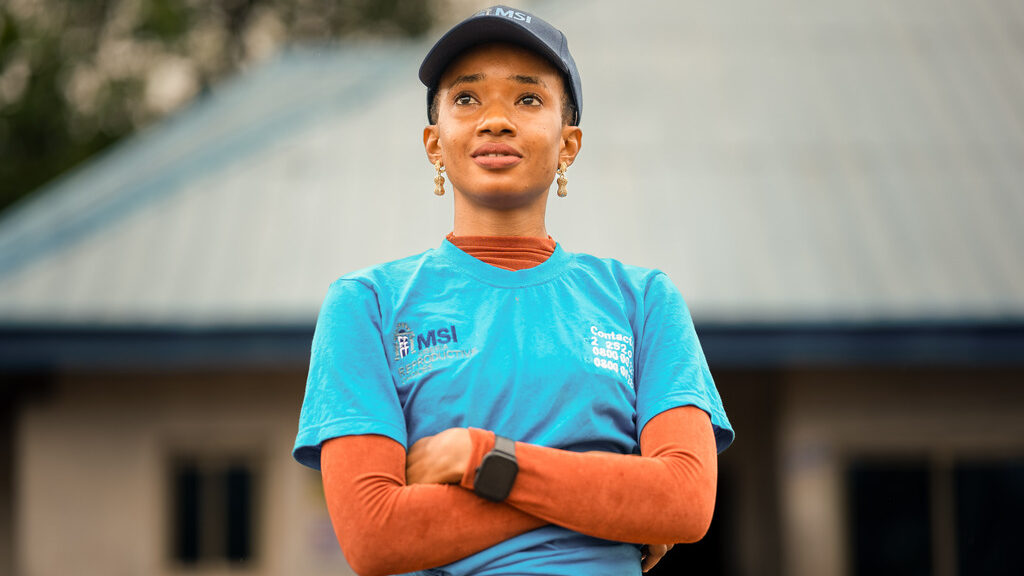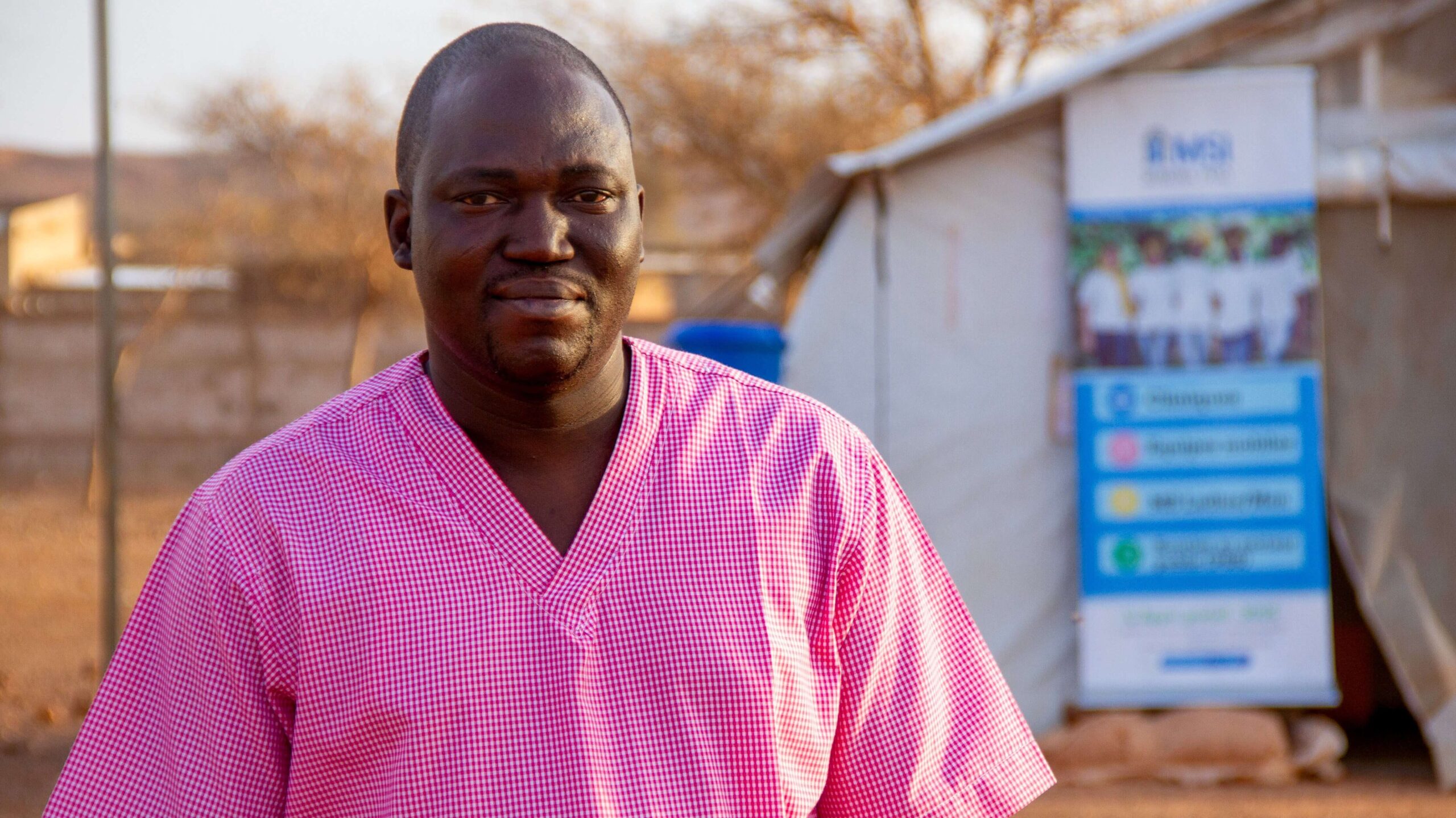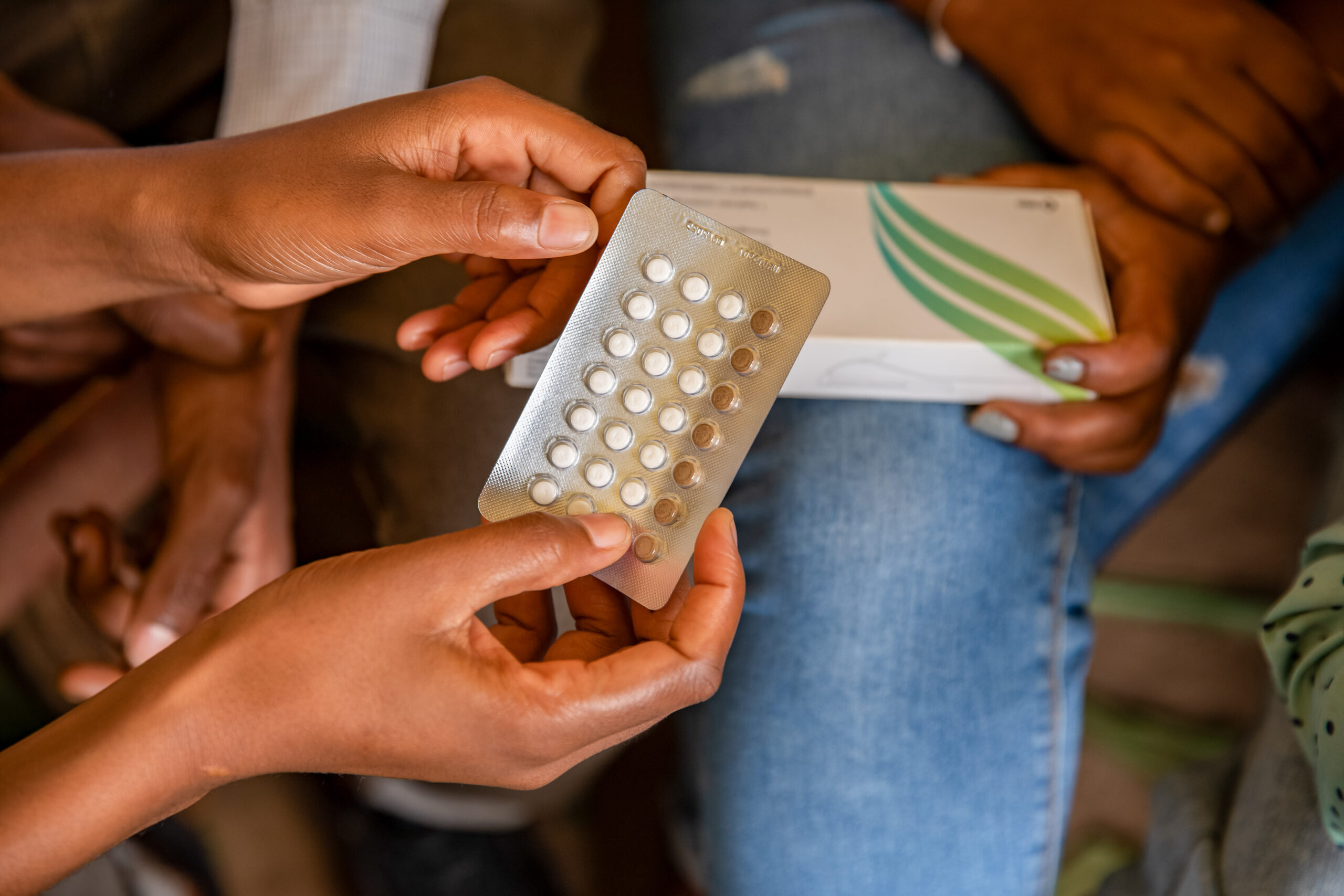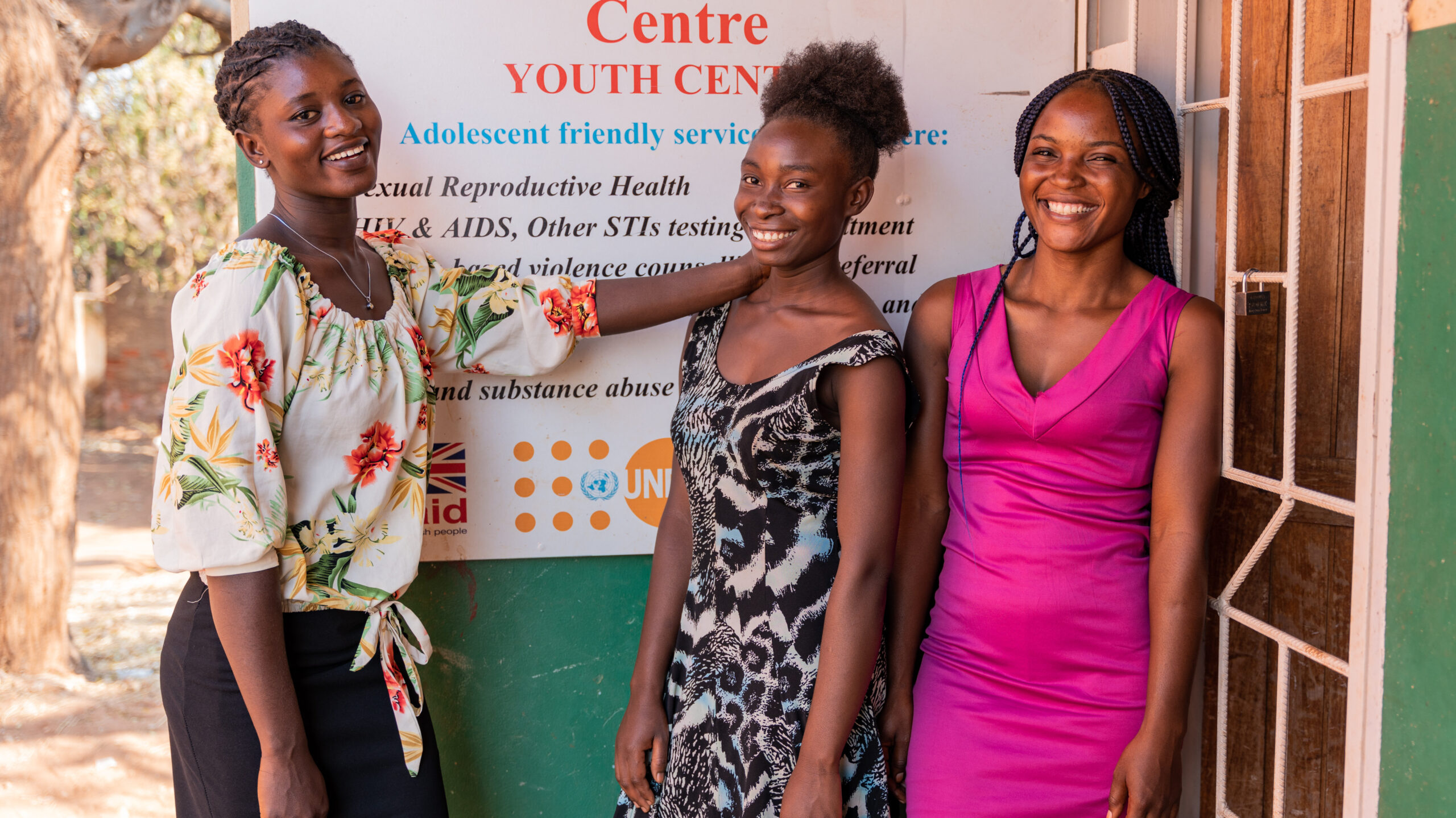
28 May marks World Menstrual Health Day with the theme ‘All Together for a Period-Friendly World’, emphasising how improving menstrual health involves everyone – not just menstrual health-specific organisations, and not just women and girls!
Why MSI talks about menstrual health
1. Menstrual health is central to women being empowered around their reproductive health and choices.
Stigma and secrecy around menstruation and a lack of acknowledgement that this is a normal part of life cause serious health and wellbeing issues. Many women and girls still lack access to information about their menstrual cycle, and to the clean water and sanitary products they need to manage their periods safely and with dignity.
2. Lack of knowledge around menstruation is a driver of unplanned pregnancies.
If you don’t understand your period, it’s hard to know how pregnancy works and how to avoid it. A study in the UK found that only half of the women they spoke to knew when their fertile window was in their cycle. In Bangladesh, only 32% of girls were aware of what menstruation was before their first period. Many girls learn about puberty and menstruation too late, putting them at risk of unplanned pregnancy.
3. Poor awareness drives harmful contraceptive myths.
Menstrual changes following hormonal contraceptive use – such as lighter or heavier periods – are often not properly discussed or understood. They can be alarming, especially in places with distinct cultural beliefs or misconceptions around contraception or menstruation. Improving how we communicate about these changes can help us bust myths and support women who want to continue to use contraception.
4. It’s an entry point to talk about broader reproductive health issues.
In many places, it’s less controversial to talk about menstruation (especially with young people) than it is about contraception. Menstrual health talks are widely used by MSI and our partners as a way to broach the topic of contraception – enhancing engagement and reducing the stigma in seeking reproductive health support, especially for adolescents.
5. It’s what adolescents want and need to hear.
An estimated one in 10 girls in sub-Saharan Africa miss school due to their period, with girls feeling ashamed of their periods and avoiding school as a result. Improving comprehensive sexuality education for both girls and boys can start remedying this situation. Young people want to know about their changing bodies during puberty.
How MSI country programmes are talking about menstrual health
Many MSI country programmes have engaging activities around menstrual health, including:
In the DRC
Who better to turn to with ‘embarrassing’ questions than a big sister? MSI’s Big Sisters (MS Grandes Soeurs) use periods as a way to talk to young girls about sex and reproductive health. They explain the basics of menstrual health and how contraception can support. They give girls reusable pads and the contact details of MSI providers so they can access services.
In Mali
Peer educators use the Dogoli Taala (‘Nothing but the truth”’) toolkit, a card game that allows adolescent girls and boys to bust myths around menstruation among themselves.
In Ghana
In Ghana, women in the Konkomba tribe are forbidden from cooking for men during their menstrual periods and aren’t allowed to use contraception. MSI Ghana partners with the government health service to organise community meetings where people come together to discuss sexual and reproductive health, separate fact from fiction, and normalise periods and the use of contraception.
In Nigeria
Education talks in schools and community meetings incorporating information on menstrual health as well as MSI’s broader contraceptive services, are helping break down barriers and reaching women and girls in need.
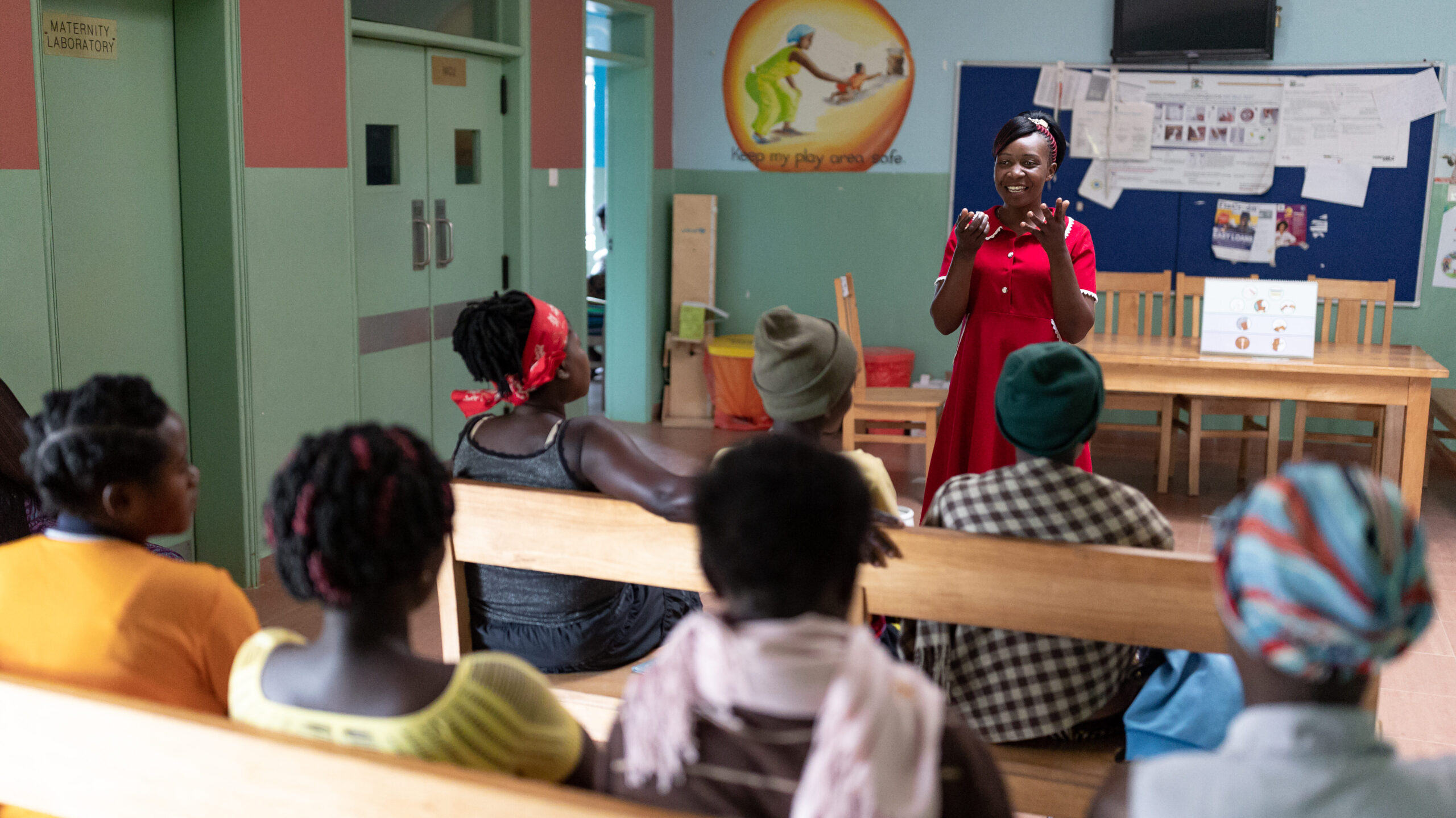
How can we go further? Tips on integrating menstrual health messaging
Don’t forget the men
Real change in menstrual health cannot happen without involving men and boys. By only talking to women and girls about periods, we could inadvertently reinforce the idea that this is a topic men and boys do not need to know about, or that it’s shameful and secretive. Learn more about why this is essential.
Inform women on menstrual changes from contraception
Contraceptive side-effects that affect periods (also known as contraceptive-induced menstrual changes (CIMCs)) can lead women to stop using contraception or not even start – if they’re unexpected or poorly explained. We need to ensure this is covered in community education talks and individual contraceptive counselling so that women know what to expect. MSI recently contributed to an article on the impact of CIMCs, emphasising the importance of applying a contextual, client-centred lens to increase acceptance of these menstrual changes.
Use empowering language
Talk about health, not hygiene. The World Health Organization called for menstrual health to be “addressed as a health and human rights issue, not a hygiene issue.” The older term of menstrual hygiene management can be stigmatising, making periods sound ‘dirty’.
No one should feel ashamed or misunderstood for having a period. Menstrual health is part of basic, essential healthcare, and a critical element of women’s rights more broadly, and MSI will continue to talk about it – not just today but every day.






